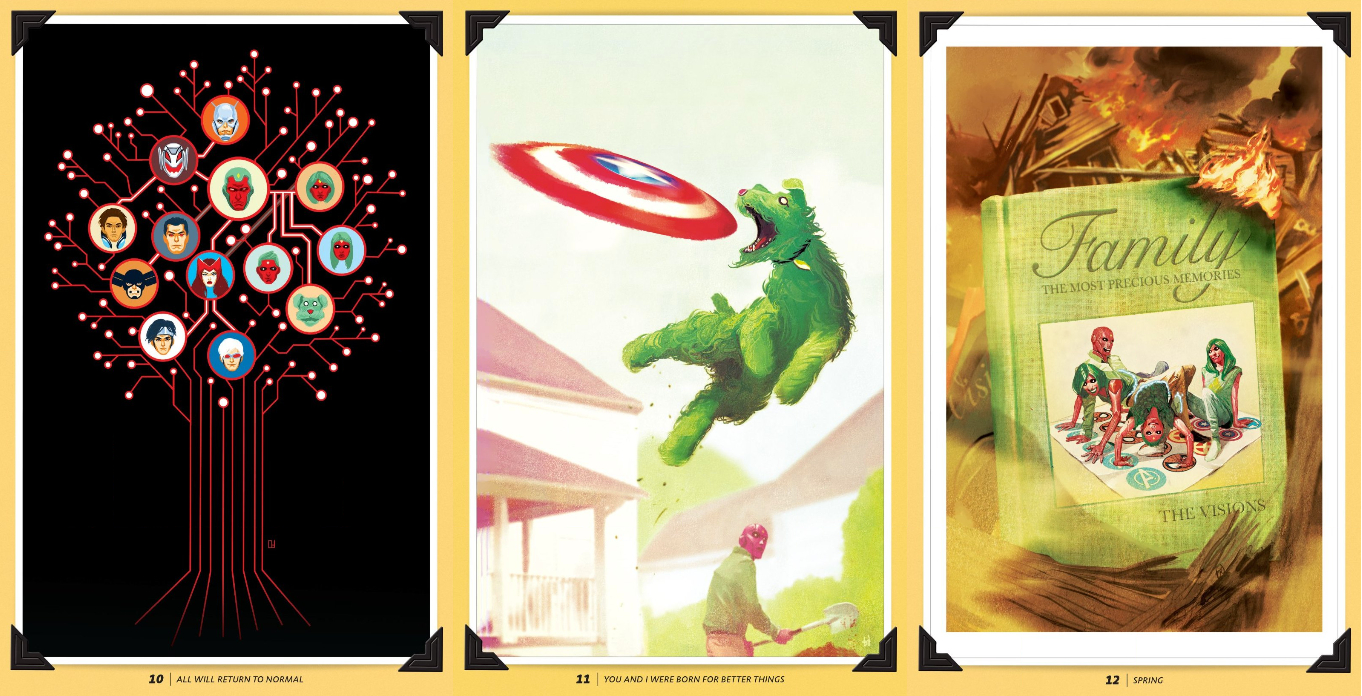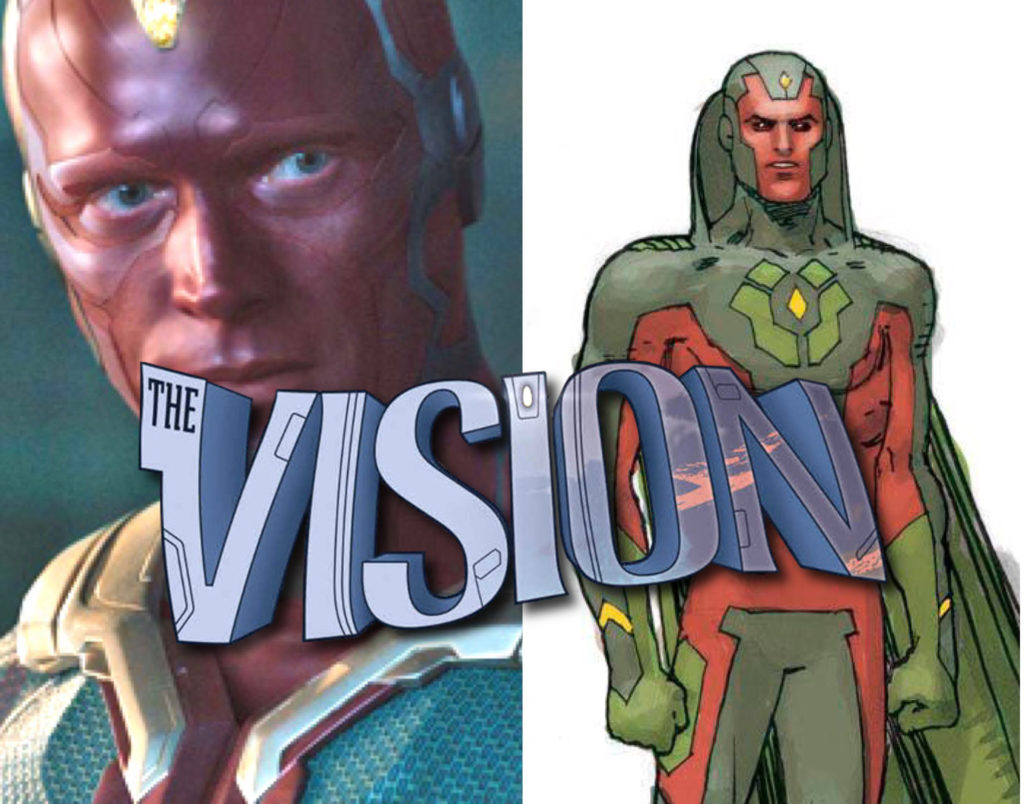A commonly asked question amongst comic circles is ‘when is there going to be another Watchmen?’
Not a sequel, as such, but when is there going to be another mainstream superhero miniseries that has the impact, intelligence and breakout appeal of Alan Moore and Dave Gibbons‘ iconic 1986 masterpiece? I don’t think there ever will be another; Watchmen occupies the same strata as Sherlock Holmes, Alfred Hitchcock, The Beatles and JAWS, it smashed mainstream preconceptions and opened up the medium to a universe of possibilities. A creator can’t purposefully set out to recapture that lightning-in-a-bottle, or specifically chase that profound audience connection. But if they write from the heart on topics/themes that are personally relevant to themselves, then they might just come close. And so in 2015, family-man and rising star comics writer Tom King created a story for Marvel comics about a superhero android that aspires to build his own robotic family, and integrate it into American suburban society, only for his best laid plans to fall to ruin. The comic was called The Vision, and people really should be talking about it for decades to come.
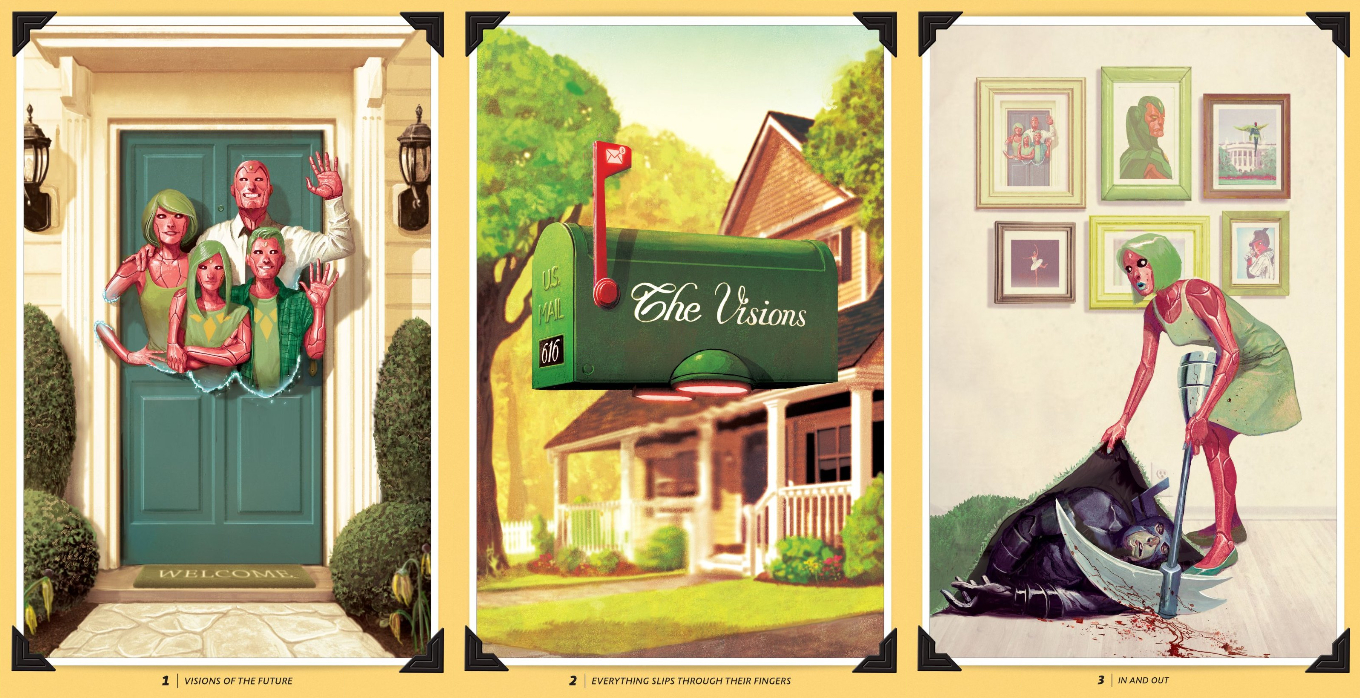
Mainstream audiences will now be familiar with the Vision as the hi-tech android played by Paul Bettany, who debuted in the Marvel movies blockbuster Avengers: Age of Ultron. I’ve got no doubt that this widespread exposure is what led Marvel comics to approve this series, which was released in the same year. But Tom King’s comic is so much more than an opportunistic cash-grab or exercise in corporate synergy. This is an actual planned out story, with start, middle and end, and with profound themes running throughout.
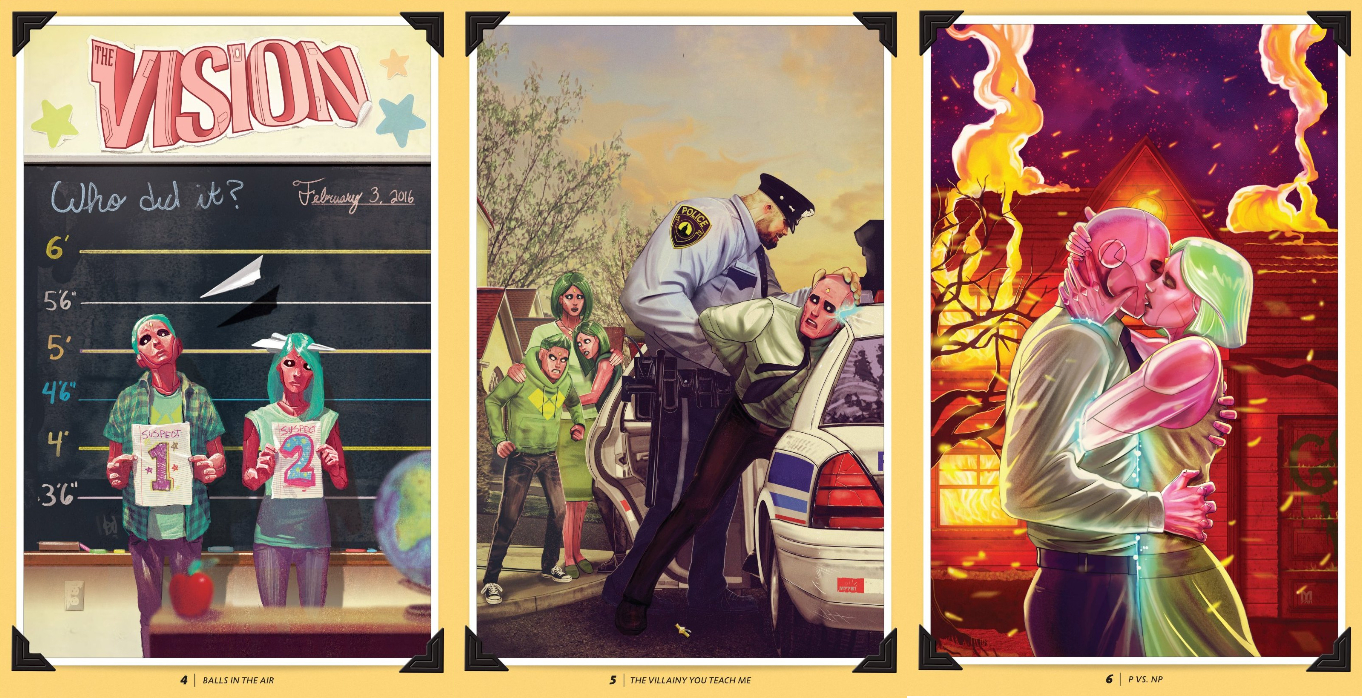
The plot is meticulously paced, and sees full-time superhero the Vision fabricate a synthetic wife, Virginia, along with two twin teenage children, Vin and Viv, all of whom aspire to live a traditional family life in the leafy suburbs of Washington DC. But while the Vision’s attention is distracted by his Avengers commitments, enemies from the hero’s past combine with prejudices in the local community to threaten everything that he holds dear, and Virginia’s bravest efforts to hold the family together put them all on a path to tragedy. The bittersweet takeaway is that, in their continuing struggle to become the perfect humans, The Visions made mistakes and fatal lapses in judgment that were utterly human. The narrative is loose enough that you can read it as a parable on the impossibilities of fitting in, as a metaphor for the unspoken struggles of managing a family, or an examination of such universal human conditions as anxiety, stress and grief.
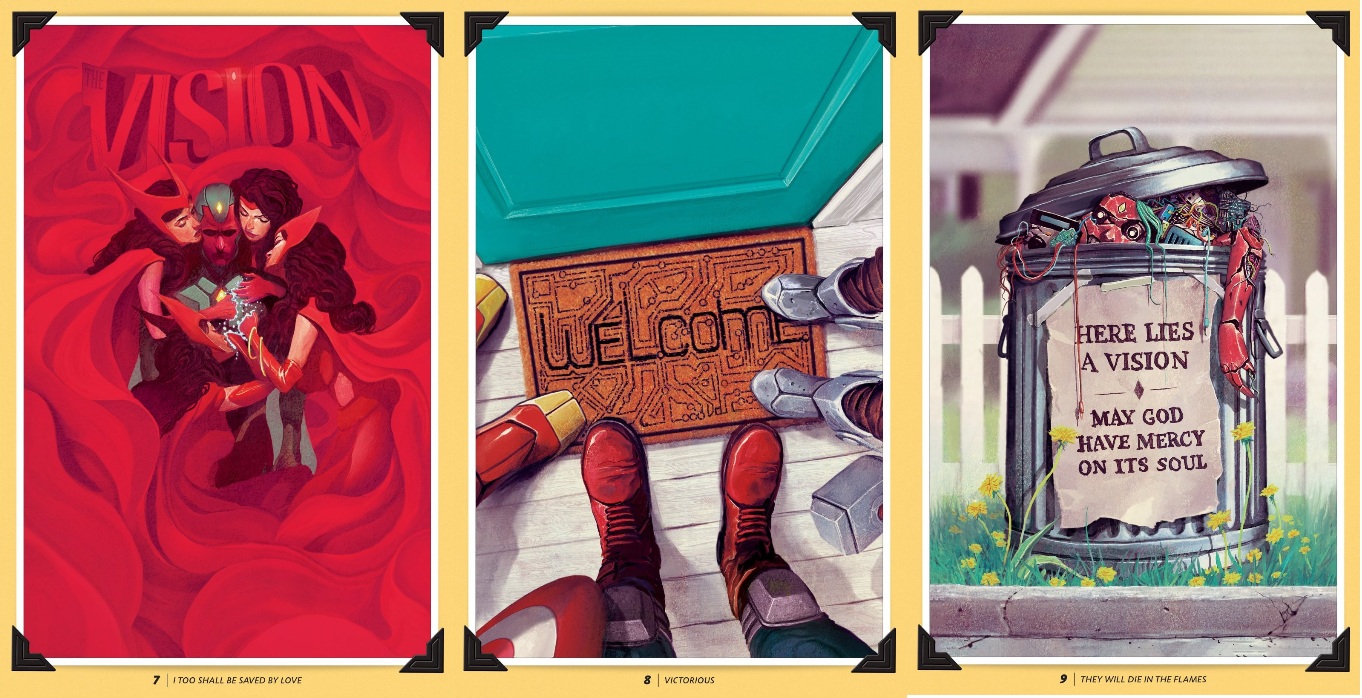
King himself pitched this as The Incredibles meets Breaking Bad, which is very apt; there’s a real snow-balling of events towards the inevitably dark conclusion, that would lend itself well to an 8 episode HBO miniseries. But there’s also a sad beauty in the foiled ambitions of the Vision family, which is more reminiscent of Edward Scissorhands and The Virgin Suicides. Think of it as Shakespeare In The Suburbs. With robots. And if none of these comparators are comics related, that’s because there isn’t another comic out there like The Vision.
